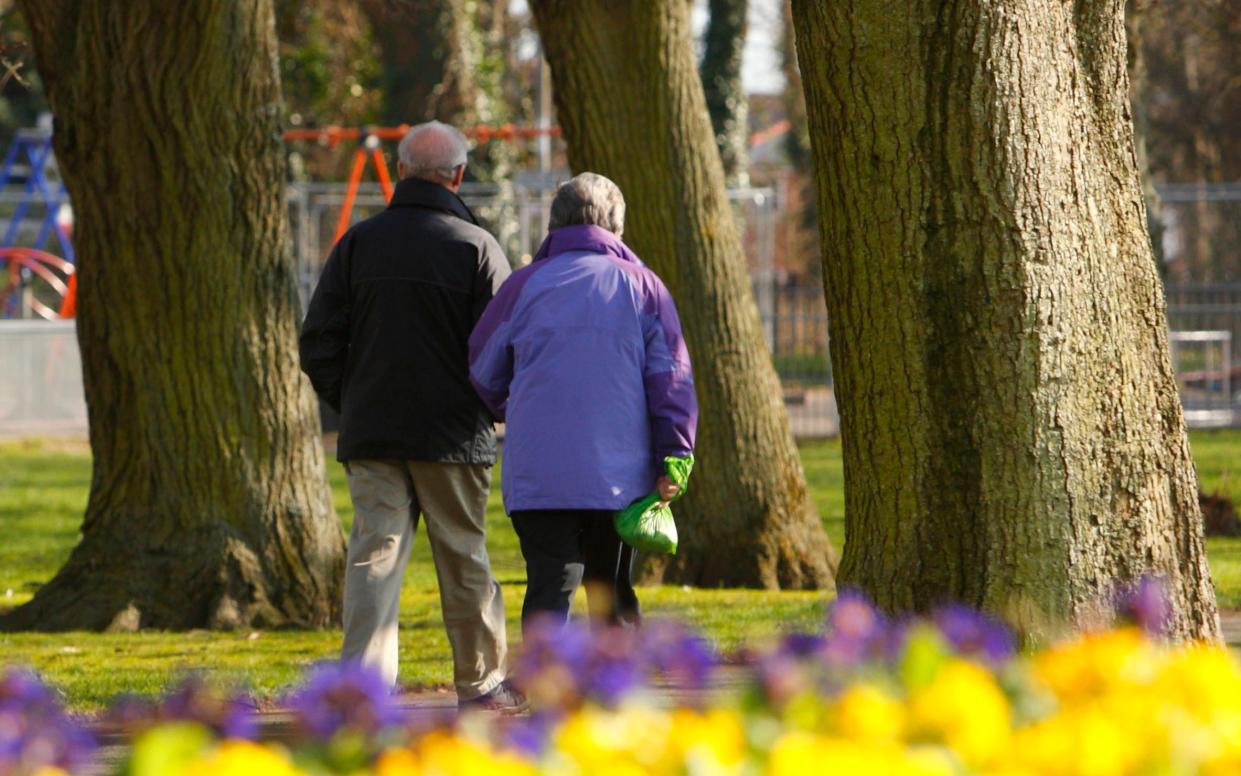Four in ten adults fail to manage even one brisk 10 minute walk a month

Four in ten middle-aged adults are failing to manage even one 10 minute brisk walk a month, health officials have warned.
One brisk walk a day is enough to cut the risk of early death by as much as 15 per cent, Public Health England (PHE) said.
But six million Britons aged between 40 and 60 do not even achieve this each month, increasing their risk of cancer, heart disease and other major killers, the research found.
Health officials said changes in habits in recent decades mean people are now 20 per cent less active than they were in the 1960s - with cars increasingly used for even the shortest of trips.
They urged millions of Britons to make small changes to their lives, using a free app which sets activity targets.
Dr Jenny Harries, deputy medical director at PHE, said: "Walking to the shops instead of driving or going for a brisk 10-minute walk on your lunch break each day can add many healthy years to your life.
"The Active 10 app is a free and easy way to help anyone build more brisk walking into their daily routine."
Research on almost 200,000 adults found that 45 per cent of middle aged men, and 38 per cent of middle aged women, fail to have a brisk walk of even 10 minutes once a month.

In twenty years, the percentage of trips taken on foot has fallen by a fifth, with just 22 per cent of journeys now involving walking.
Professor Sir Muir Gray, clinical adviser for the Active 10 app said the PHE research showed that small changes could make a dramatic difference.
"We all know physical activity is good for your health, but for the first time we're seeing the effects that easily achievable changes can make.
"By walking just 10 continuous minutes at a brisk pace every day, an individual can reduce their risk of early death by 15 per cent.”
"They can also prevent or delay the onset of disability and further reduce their risk of serious health conditions, such as type 2 diabetes, heart disease, dementia and some cancers."
A brisk walk amounts to at least three miles an hour, officials said.
Government recommendations on activity say adults should take part in at least two and a half hours (150 minutes) of moderate intensity activity every week.
The new PHE report says 20 per cent of those aged between 40 and 60 manage less than half an hour weekly, when housework, walking and odd jobs are totted up.
Health officials said the new campaign aimed to encourage those doing little activity, with even small amounts making a critical difference, when targets of 150 minutes a week might feel “unrealistic”.
It follows NHS proposals for families to get discounts on their supermarket shopping if they hit weekly exercise “step targets”.

Free bikes, sprinting tracks on pavements and outdoor public gyms are also proposed as part of efforts to drive out couch potato lifestyles and reward those who try to shape up.
The head of the NHS England said the schemes, which will be piloted in new towns, aimed to create a “design for life” which would persuade young and old out of sedentary habits.
Under the proposals, those who meet weekly activity targets, tracked on apps, could be offered discounts on weekly supermarket shopping and sports gear, free cinema tickets, or cut-price gym membership.



